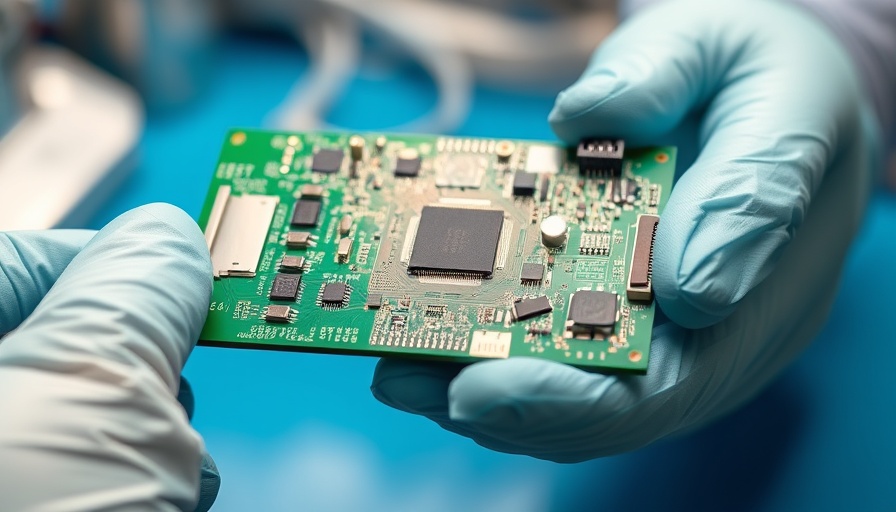
The Future is Decentralized: How AI Chips Are Changing the Game
The technological landscape is undergoing a significant shift with the development of a new AI chip capable of functioning without reliance on cloud servers or internet connectivity. Developed at the Technical University of Munich (TUM) by Professor Hussam Amrouch and his team, this innovative AI Pro chip mimics the human brain’s methods of processing and learning—characteristics that set it apart in a market dominated by cloud-dependent solutions.
Saving Energy and Enhancing Security
One of the standout features of the AI Pro chip is its remarkable energy efficiency; it uses only 24 microjoules for specific tasks—an astonishing record compared to existing AI chips, which consume between 10 to 100 times more energy. This efficiency not only reduces operational costs but also significantly lowers the carbon footprint traditionally associated with AI processing. As more industries seek sustainable solutions, the AI Pro chip represents an environmentally friendly alternative.
Neuromorphic Architecture: What Makes This Chip Unique?
Employing a neuromorphic architecture, the AI Pro processes data by recognizing similarities and patterns rather than the exhaustive data training required by conventional chips. This innovative approach, termed "hyperdimensional computing," allows the chip to draw inferences from various pieces of information, mimicking the human brain's learning style. This design enables the chip to be customized for specific applications, such as processing health data from smartwatches or navigation details for drones. These targeted functionalities provide substantial advantages in fields that require rapid and secure data processing.
Potential Applications and Market Reach
With the focus on creating specialized AI chips, applications are virtually limitless. The potential markets for the AI Pro are vast, from automotive technology to medical devices, as more sectors recognize the need for localized data processing that maintains privacy and reduces reliance on cloud infrastructures. Prof. Amrouch emphasizes that the capacity for customized solutions presents a significant market opportunity compared to all-purpose chips from industry giants like NVIDIA.
The Road Ahead: Challenges and Opportunities
While the AI Pro chip stands at the forefront of technological advancement, it faces challenges in terms of production scale and cost; with a price tag of 30,000 euros, the chip is not yet accessible for widespread consumer use. However, as production improves and costs decrease, we may find these chips in everyday consumer products, revolutionizing how we interact with technology in our homes and workplaces. This path to future technologies not only leads to smarter devices but also brings into focus ethical considerations around privacy, sustainability, and the integration of AI into our daily lives.
As discussions surrounding the future of AI continue, stay informed about advancements like the AI Pro chip that promise to reshape the technological landscape. Innovations that prioritize decentralized solutions not only enhance user privacy but also pave the way for new business models in many industries.
 Add Row
Add Row  Add
Add 




Write A Comment